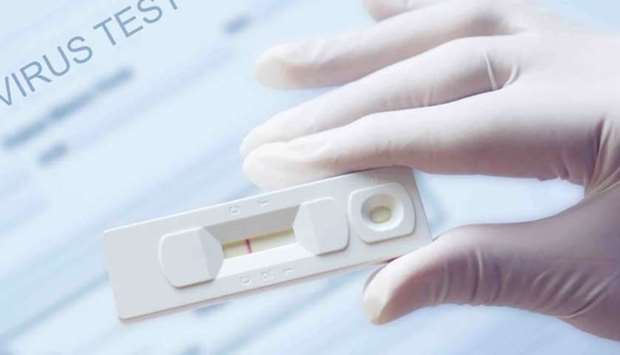Qatar has tested roughly about 3.64% of the total population for novel coronavirus (Covid-19) as of May 2, disclosed an official Sunday.
“So far, we have a total infection rate of 0.53% of the population which can be taken as one in every 189, tested positive,” said Dr Mohamed Ayoub, senior research director, Environment and Sustainability Centre, Qatar Environment and Energy Research Institute (Qeeri), part of Hamad Bin Khalifa University.
Dr Ayoub was speaking at a webinar organised by Qeeri on ‘Demystifying the links between Covid-19 Response and Local Air Quality.’ Dr Ayoub also noted that some of the tests could be repetitive on the same person and therefore the percentage of people could vary a bit accordingly.
“Qatar’s testing strategy has been based on contact tracing. Those who have been in contact with a positive case, are traced and tested. This method prevents large number of infections by identifying the cases quite early and by isolating them from others. These people are quarantined and provided medical treatment and other facilities,” explained Dr Ayoub.
According to the official, this strategy has resulted in a big jump in positive test rates especially in the past couple of weeks.
“There is a steady increase in the number of tests as well as the number of new cases. In the last couple of days, we are seeing a kind of changes in the number of cases. The number of cases and tests show that we are perhaps reaching the peak. We currently have about 90% of active cases and over 10% have recovered while the mortality rate is very low,” he said.
He also said that Qeeri is engaged in several activities to fight Covid-19 in the country and has many partnerships with the Ministry of Public Health (MoPH).
“We are looking at a number of ways to fight Covid-19 in the country. We have been testing the quality of disinfectants used in the country. Through our testing we make sure that the quality of these disinfectants is at the level that is expected of. We are also looking at water quality and waste water whether the virus spreads through waste water,” he noted.
“We have a critical partnership with the MoPH. We will be sharing our air quality data with them. Their virologists and other experts can examine the data and understand the air quality and how it can be used in the fight against Covid-19 and other diseases. We are collaborating with the MoPH on a study that looks at the indoor air quality. We are also working with the Ministry of Municipality and Environment with air quality challenges but also specifically to Covid-19 related challenges,” he added.
Dr Ayoub was speaking at a webinar organised by Qeeri on ‘Demystifying the links between Covid-19 Response and Local Air Quality.’ Dr Ayoub also noted that some of the tests could be repetitive on the same person and therefore the percentage of people could vary a bit accordingly.
“Qatar’s testing strategy has been based on contact tracing. Those who have been in contact with a positive case, are traced and tested. This method prevents large number of infections by identifying the cases quite early and by isolating them from others. These people are quarantined and provided medical treatment and other facilities,” explained Dr Ayoub.
According to the official, this strategy has resulted in a big jump in positive test rates especially in the past couple of weeks.
“There is a steady increase in the number of tests as well as the number of new cases. In the last couple of days, we are seeing a kind of changes in the number of cases. The number of cases and tests show that we are perhaps reaching the peak. We currently have about 90% of active cases and over 10% have recovered while the mortality rate is very low,” he said.
He also said that Qeeri is engaged in several activities to fight Covid-19 in the country and has many partnerships with the Ministry of Public Health (MoPH).
“We are looking at a number of ways to fight Covid-19 in the country. We have been testing the quality of disinfectants used in the country. Through our testing we make sure that the quality of these disinfectants is at the level that is expected of. We are also looking at water quality and waste water whether the virus spreads through waste water,” he noted.
“We have a critical partnership with the MoPH. We will be sharing our air quality data with them. Their virologists and other experts can examine the data and understand the air quality and how it can be used in the fight against Covid-19 and other diseases. We are collaborating with the MoPH on a study that looks at the indoor air quality. We are also working with the Ministry of Municipality and Environment with air quality challenges but also specifically to Covid-19 related challenges,” he added.


